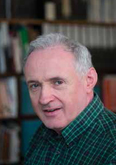
Isaac Newton, born in 1643, has been portrayed as living at a pivotal moment in history when the influence of magic and superstition was displaced by science. Because he lived at that moment, he reflected both of those influences: in his belief in alchemy on the one hand and his creation of physics as a discipline on the other.
Oliver Lodge, born two centuries later, represents a counter-example to this aspect of Newton’s historical uniqueness. Lodge illustrates that, well away from Newton’s time and within a single person, one can encompass the ability to make a major contribution to science and hold beliefs seemingly, today, inimical to a scientific outlook on life. In Lodge’s mind these characteristics were intimately related, and were publicly exposed in his reaction to his son Raymond’s death in World War One.
